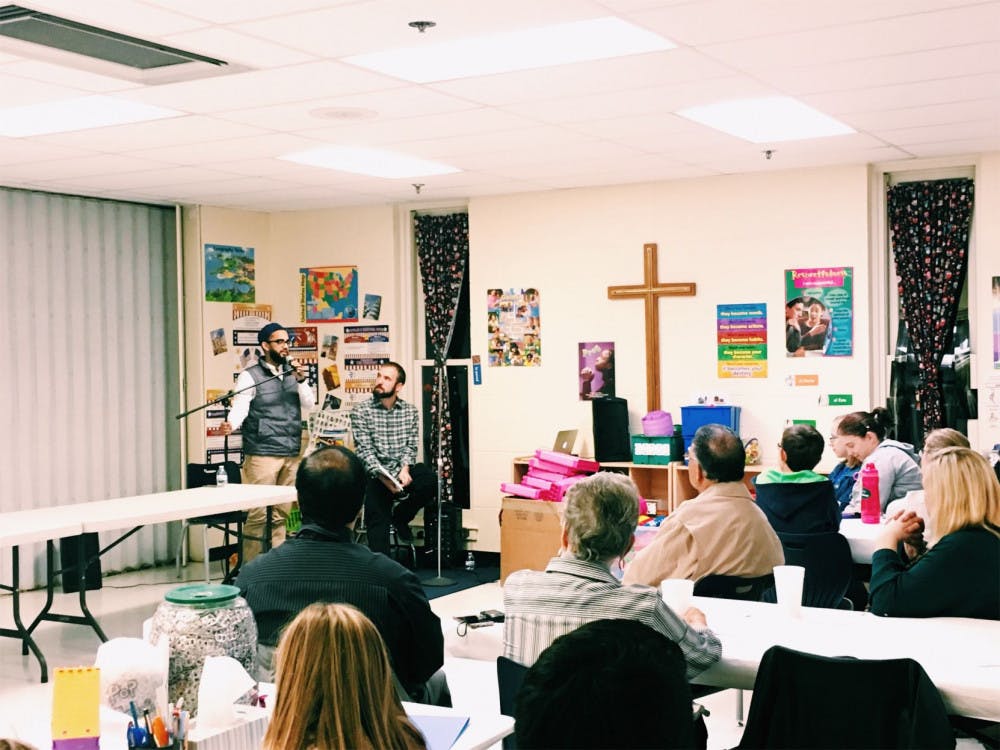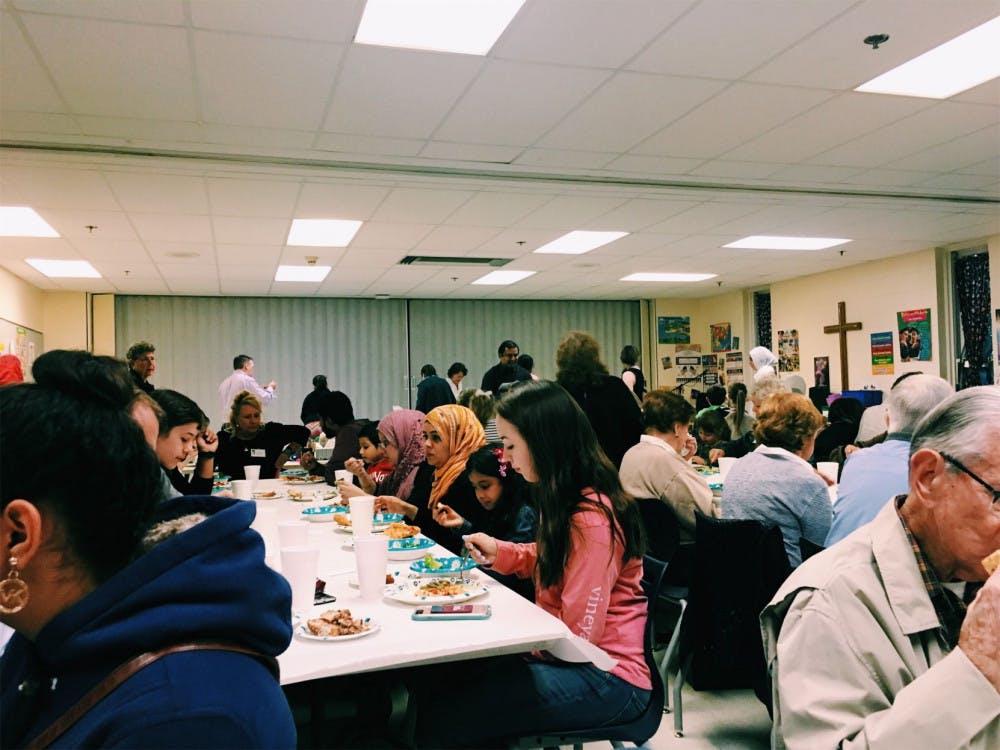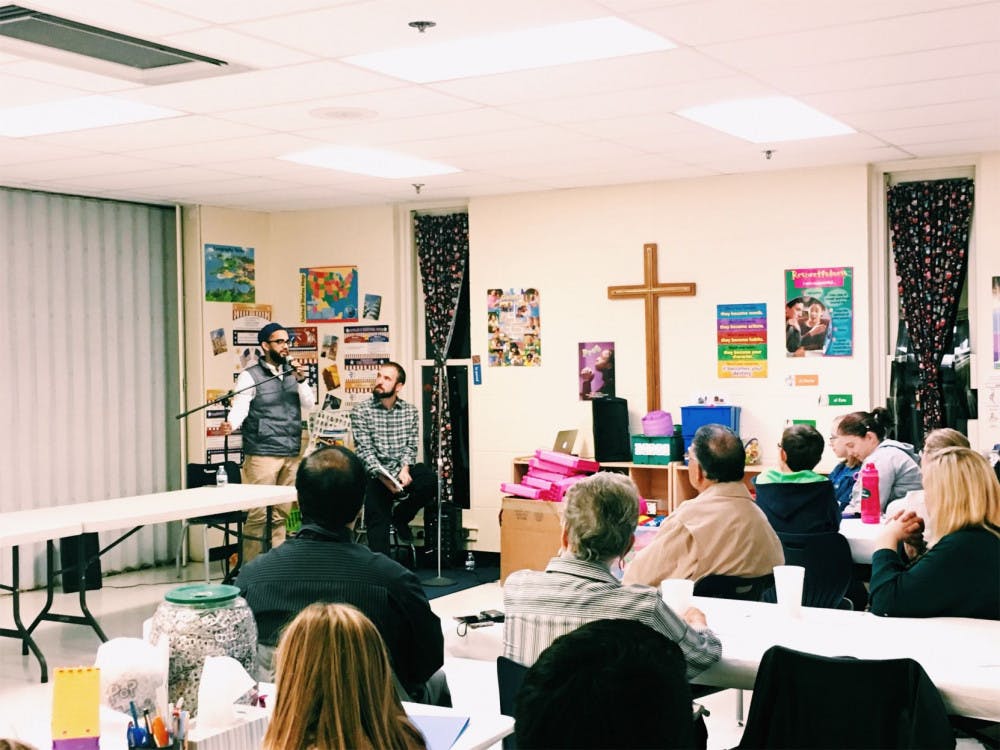Bringing up religion can often spark heated debates, but some Memphis congregations have tackled the status quo by forming the Memphis Friendship Foundation (MFF).Â
Former pastor Steve Stone and Bashar Shala, a Memphis Islamic Center (MIC) board member, met in 2008 after the center moved next door to Heartsong Church. At the time, MIC met in a small building, and during that year’s Ramadan, the Muslim members did not have enough space for their nightly prayers.
To remedy this, Stone opened Heartsong to them for the month. Since then, the two congregations saw each other more as neighbors and even scheduled more events together after Ramadan ended. Now Thanksgiving dinners and annual picnics celebrate the interfaith friendship of MIC and Heartsong.Â
“The friendship between me and Bashar has been one of the greatest blessings of my life,†Stone said. “Heartsong and MIC deepen their relationship from year to year.â€

Safi Khan, the Memphis Friendship Formation’s youth and outreach director, discusses what Islam is at Farmington Presbyterian Church Oct. 25. Church members also witnessed the “Maghreb” prayer at the event.
Shala said this friendship had made him a better Muslim and a better citizen.Â
“It still enriches my life everyday,†Shala said.
MFF’s major project is “The Friendship Park,†a park for all faiths, cultures and backgrounds to co-exist together in harmony. It started on July 22, 2012, and is still in progress.
Shala and Stone received the “Freedom of Worship Medal†from the Roosevelt Institute (a liberal think tank inspired by the legacies of Franklin D. and Eleanor Roosevelt) on Oct. 10 for “The Friendship Park†and their efforts in sustaining the interfaith initiative. Shala believes their work “has never been more important than it is today.â€
“We must decide what kind of nation we are now…what kind of nation we want to become and what example we set forth for the world,†Shala said. “We still have a lot of work ahead of us on the path of freedom.â€
Shala and Stone are not the only ones in Memphis engaging in the interfaith dialogue – Doug Barr, Farmington Presbyterian Church’s Christian education director, and Safi Khan, MIC’s youth and outreach director, became friends through their interfaith initiative with their respective youth groups.Â
Barr and Khan met at a Starbucks and talked about creating interfaith programs to connect these groups. They then planned their first event – a dinner at MIC with an Islam 101 class.Â
“It’s [the meeting] not just for the sake of work but for the sole purpose of getting to know each other before anything else,†Khan said. “We’re doing our human duty as a neighbor – as a person – just to kind of get to know each other, because we don’t.â€Â

Muslims and Christians sit together and eat at Farmington Presbyterian Church. Attendees talked amongst each other about their respective faiths.
Khan and Barr said going back to the essentials of religion is the basis for interfaith – it exposes young people to things outside their daily routine.Â
Barr said dialogue between different beliefs and opinions need to happen, and places of worship should be a safe space for people to have these conversations.Â
“Just have those conversations – never in debate, more in dialogue,†Barr said. “That’s probably the most valuable place that faith can be at this point.â€
The youth directors hosted a dinner with the Muslim community at Farmington Presbyterian Church on Oct. 25. They collected questions from the two communities and presented the most asked questions at the dinner.
The congregations talked amongst each other throughout the dinner and asked each other their own questions. Church members also witnessed the Muslims pray the “Maghreb†prayer, their fourth prayer of the day. Barr and Khan said people bonded over the food and their commonalities.Â
 “A person told me after that day: ‘We always drive past this church. We live just down the street, but if it wasn’t for this event, we would have never stepped foot in this building,’ and when you hear testaments like that, it really opens up your eyes that people are honestly very good at heart,†Khan said.
Interfaith, for Barr and Khan, means just having conversations with people, whether it’s about faith, culture or each other’s commonalities. Barr said interfaith will only happen when people of different communities have conversations.
“If somebody wants to sit down, have a cup of coffee and calls me up and says ‘hey, do you want to have a cup of coffee,’ I’ll have a cup of coffee with you,†Barr said. “Someone that wants to have a conversation, whether that’s around faith, culture, religion or whatever – it’s a conversation worth having.â€




